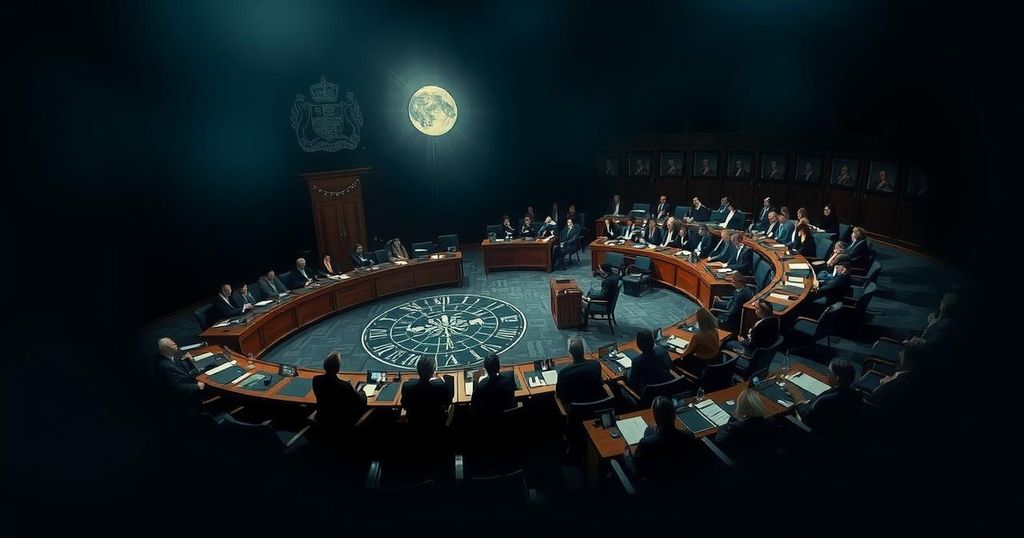The International Court of Justice will hold hearings starting December 2, 2023, on climate change obligations requested by the UN General Assembly. The hearings aim to clarify state financial liabilities regarding climate change and the necessary preventive actions. While advisory opinions are non-binding, they significantly affect global climate policy and law. The proceedings will reference treaties like the Paris Agreement and prior interpretations by other courts, indicating broader interpretations of states’ obligations.
On December 2, 2023, the International Court of Justice (ICJ) will commence hearings regarding an Advisory Opinion on the obligations of states concerning climate change. Over 100 countries and organizations will present, and the court will evaluate each presentation over a two-week period. This advisory opinion, requested by the United Nations General Assembly, aims to clarify the financial liabilities of states for contributing to climate change and the necessary actions required to mitigate this global issue.
The International Court of Justice, established in 1945 via the UN Charter, serves as a judicial venue for countries to resolve disputes in a neutral environment. Located in The Hague, Netherlands, the ICJ comprises 15 judges elected for nine-year terms by the UN General Assembly and Security Council, with countries represented by judges such as those from Australia, Brazil, and China. The President of the Court, Judge Nawaf Salam of Lebanon, will oversee these significant hearings.
The inquiry into climate change by the ICJ stems from a request by Vanuatu, an island nation experiencing the severe impacts of climate change, including increased flooding. The UN General Assembly seeks to determine the international obligations of countries to protect the climate system, particularly concerning anthropogenic greenhouse gas emissions. The questions posed primarily revolve around the responsibilities of states to safeguard vulnerable populations and the environment for current and future generations.
Although advisory opinions from the ICJ are not legally binding, they carry substantial weight and influence policy development at both international and national levels. The outcome of these hearings will shape legislative discussions within the UN, the European Union, and individual states, setting precedents for future legal actions regarding climate obligations.
While predicting the ICJ’s conclusions remains complex due to the confidentiality of submitted filings and arguments, it is anticipated that the court will heavily reference the Paris Agreement. This agreement outlines internationally recognized goals for reducing greenhouse gas emissions, although its legally binding status remains disputed among signatory nations. Furthermore, prior interpretations from other international bodies, such as the International Tribunal on the Law of the Sea and the European Court of Human Rights, provide insights into how the ICJ may interpret obligations surrounding climate change. Both courts have expanded existing legal frameworks to encompass climate-related responsibilities, suggesting a potential trajectory for the ICJ’s opinion.
Public access to the hearings will be limited, with only five seats available on a first-come, first-served basis. The proceedings will also be streamed online to ensure broader accessibility, reflecting the global community’s interest in the implications of the ICJ’s findings pertinent to climate change and international law.
The International Court of Justice (ICJ), known as the World Court, is a vital judicial entity established to resolve conflicts between nations and offer advisory opinions on legal matters. The upcoming hearings mark a significant development regarding states’ legal obligations concerning climate change, driven by increasing global concern about environmental degradation and climate policy. The legal questions posed to the ICJ will examine responsibilities under international law, particularly the protection of vulnerable island states and future generations affected by climate change. This issue has gained momentum through calls from affected nations and organizations advocating for clearer legal definitions and responsibilities related to climate change.
In conclusion, the ICJ’s upcoming hearings represent a critical juncture in international climate law, with the potential to redefine state obligations regarding climate protection. Despite the advisory nature of the opinion, the forthcoming findings will likely influence global legislative frameworks and future legal challenges related to climate action. As the court reviews the implications of documents like the Paris Agreement alongside precedents from other international legal bodies, the outcomes could underscore the necessity of robust environmental protections in the face of climate change.
Original Source: www.forbes.com







